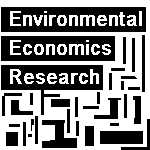



RESEARCH NETWORK: A site to build up interest and to network with individuals researching on environmental economics issues, from a New Institutional Economics perspective.
RESEARCH AID: This site is also useful as a starting point for your research into environmental economics and economics issues in general.
BOOKS, BOOKS, BOOKS: A list of references related to research on environmental issues, and New Institutional Economics is provided under the section "Selected" and "Comprehensive Bibliography".
LINKS: The links provided here may be useful as they contain sources of information that are diverse and applicable to many areas of environmental economics and economics. Details on these links are provided further down this page but, briefly, they are categorised as follows:
| Economics | New Institutional Economics | Public Choice Theory | Forest and Forest-Related | Environment |
Links are regularly added or updated. They are first added here before being incorporated into this site.
SEARCHING THE INTERNET: A "Selection of Search Engines and Web Guides" is provided for your research on the environment. Some have been selected because of their specific focus on matters related to law (FINDLAW, LAWCRAWLER), and some on an academic research component (SAVVY SEARCH, NORTHERN LIGHT). Click here to view this selection.
A "Selection of Search Engines and Web Guides" is provided for your research on the environment. Some have been selected because of their specific focus on matters related to law (FINDLAW, LAWCRAWLER), and some on an academic research component (SAVVY SEARCH, NORTHERN LIGHT). Click here to view this selection.
Alternatively, try the Social Science Information Gateway (SOSIG) which provides an extensive online catalogue of internet resources on the social sciences, or the INOMICS Search Engine specially tailored for economists.
MESSAGE BOARD: Join my Environmental Economics Research club at Yahoo! to share your views on the environment and on environmental economics research in general. Click here to view.
GENERAL RESEARCH FOCUS AND INTERESTS:
For a rough idea on what I have been doing in the past, please click here.
However, the broad focus of my research now is on environmental issues in the Southeast Asian region; notably in Thailand, Singapore, Malaysia, Indonesia and the Philippines. The following aspects are of interest to me:
SARAWAK: At the moment my research centers on forests and the environment. The approach involves utilising theories from the economics of property rights, and public choice to examine and explain forestry conflicts in Sarawak, Malaysia (which is on the north-west coast of Borneo). More details of this approach can be found in the next section under "Analytical Framework of My Research in Forests".
With regards to Sarawak, it is the largest state in Malaysia with a land area of approximately 12.44 million hectares. Out of this area, 8.26 million hectares are covered in forests. The economy of Sarawak is predominantly agricultural and rural-based and the total population in Sarawak numbers 1.7 million. For links to more information about Sarawak, please click here or try Sarawak Alive! A very interesting site to visit is the Sarawak Dayak Community Online. Up-to-date coverage of issues on the Sarawakian Dayak community is available here. Recent news of a quite distressing nature on the continuing erosion of native rights can be found here at About Sarawak [Rengah Sarawak].
I have approached my study by developing a framework using existing theories in New Institutional Economics (property rights and transaction costs together with neoclassical economics) to explain forest disputes. In addition, this framework also utilises concepts from Public Choice Theory to explain incentives faced by the state in specifying institutions and property rights. The approach is qualitative: examining both the current specification of institutions and property rights in forests; and scrutinising the political-economic interactions involved (political costs and benefits) in the allocation of forests for its various uses. It is hoped that the scope within this framework would serve to illuminate and to explain complex empirical forestry issues in a manner which is economically rational and clear, and will contribute to an overall understanding of the economic-political interactions involved in forestry allocation and disputes.
For a brief list of references related to my research interests, please see my selected bibliography. This bibliography is updated regularly and contains recently published materials. Click here.
Comprehensive Bibliography
For a comprehensive bibliography, click here. However, not all references in my "Selected Bibliography" are listed here, and publications date up to 1995 only.
Bibliography for Economics Writing, WWW Economics Resources and Databases, Working Papers, On-Line Journals, Environmental Economics Information, Information on Economics Departments. Click here.
Transaction Costs Bibliography, Autobiographies of North and Coase, Institutional Economics, Law and Economics Resources, the New Institutional Economics Network, and Conference Papers on New Institutional Economics. Click here.
Public Choice Essays, and also the Public Choice Society. Click here.
Malaysian Forestry Issues, Forestry Statistics, Forest Bibliography, Sarawak Forest Department, Various WWW Forest and Forest Conservation Sites. Click here.
Mainly Environment WWW Sites and More: ARBEC, Correcting Anti-Environmental Myths, GAIA, Friends of the Earth, International Rivers Network, June's Jungle, Lycos Saves the Planet, Political Economy Research Center, Sahabat Alam Malaysia, Earth Island Institute, Yahoo! Full Coverage on Global Warming, etc. Click here.
Have a nice day!
Selected and Comprehensive Bibliography:
List of Economics, New Institutional Economics, Public Choice Theory, Forest and Forest-Related, and Environment Links (Annotated)
Economics Links
New Institutional Economics Links
Public Choice Theory Links
Forest and Forest-Related Links
Environment Links
Searching the Internet:
 For your research, try the following search engines and web guides. Click here.
For your research, try the following search engines and web guides. Click here.
E-Mail Me:
polee@yahoo.com.au or polee@rocketmail.com
Please Post a Message:
Share your views on the environment and form a network by posting a message here.
(c) 1997-2003 Written and Maintained by P.O. Lee

polee@yahoo.com.au or polee@rocketmail.com
Last Updated: 20 April 2003.